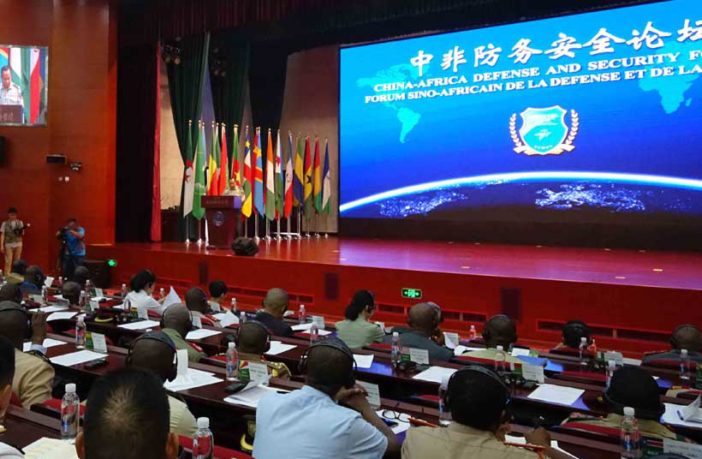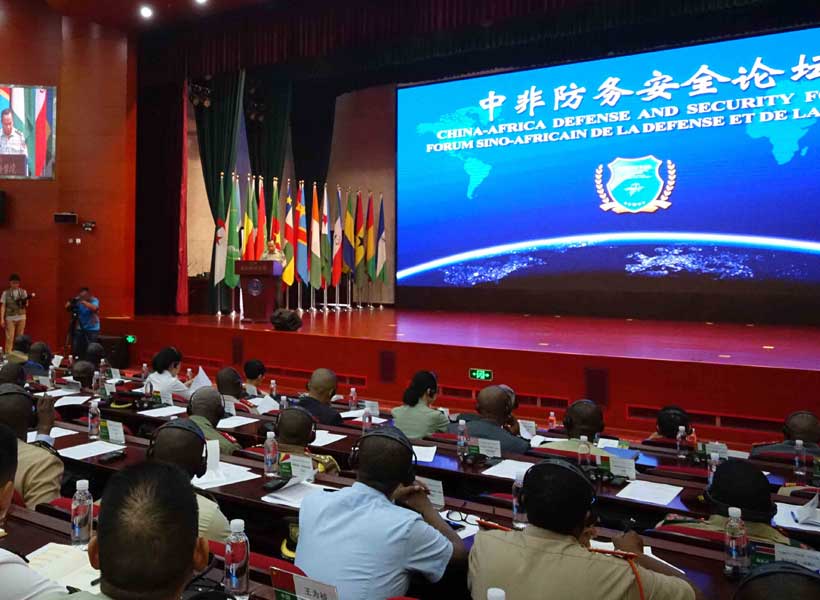Modern Diplomacy
By Richard Attias
This past Tuesday, the first China-Africa Defense and Security Forum, attended by high-ranking officials from 50 African countries, concluded in Beijing.
On that same day in Cascais, Portugal, former European Commission President Jose Manuel Barroso, Portuguese President Marcelo Rebelo de Sousa, 20 African ministers, and more than 400 African and European leaders kicked off the first EurAfrican Forum.
While the two summits took place more than 6,000 miles apart, their purpose and goals could not be more similar: global powers like China and Europe, as well as India, Turkey, and Russia, see an opportunity to help accelerate the economic advancement of Africa while exerting greater global influence, especially as the United States withdraws from engagement in the continent and pursues its America First foreign policy agenda.
Make no mistake, Africa is on the verge of a major transformation. The continent today is home to 226 million youths between the ages of 15-24, or 19 percent of the global youth population. By 2035, the number of young Africans of working age will exceed that of the rest of the world combined. Around that same time, nearly 45 percent of all Africans are expected to join the middle or upper class.
This critical moment, however, offers both great promise and great risk, not just for Africa, but for the global powers that seek to play a larger role in the region. If China, Europe, and other nations hope to co-create with Africa a shared, sustainable, and prosperous future, it is critical that they learn from the mistakes of the past by collaborating with Africa instead of exploiting it. By building partnerships based on mutual trust, respect, and transparency, Africa, China, and Europe can create a new model for 21st-century international cooperation.
Much has been made of how China has vastly expanded its footprint in Africa over the past two decades while avoiding the pitfalls of past imperial powers. It has largely been a “win-win” partnership, with China gaining access to Africa’s natural resources and African nations getting help to build much-needed infrastructure. China is now the continent’s largest trading partner. More than 10,000 Chinese firms are operating on the continent. China’s massive infrastructure project, the Belt and Road Initiative, will eventually connect China by land and sea to critical points around the world – from Southeast Asia to the Middle East to Africa.
As China continues to make capital investments in the continent, it is critical that African nations not become burdened with huge debts, which can make them susceptible to outside influence on their economies and politics. China can become a trusted lender by adhering to international standards that ensure the transparency and viability of its loans, and by implementing tried-and-true programs established by The Paris Club with the IMF that return borrowers to sustainability.
This type of trust-building and accountability will also be essential if Europe is to take advantage of the vacuum left by the United States and play a greater role in shaping Africa’s future. In order to succeed, Europe must deal head-on with the role it played in dividing, occupying, and colonizing the continent in the 19th century.
One way to build respect between regions and trust between leaders is for Europe to act collectively as the European Union rather than as individual states. Priority should be placed on building a more coordinated approach between the EU and the African Union, as this will also help address the African migration challenge currently facing Europe.
With the UK consumed by Brexit, Italy implementing a populist agenda, and Spain still reeling from corruption scandals, the EU must look to leadership from France and Portugal in building a modern-day partnership with Africa.
France has a complicated and fraught history with Africa, whose last former French colonies achieved independence in the 1960s. But French President Emmanuel Macron has made it a priority of his presidency to reimagine a collaborative relationship between France and Africa. This year, France has committed 200 million euros for schools in African countries and 65 million euros to promote digital startups throughout the continent. At the same time, Portugal is also stepping up its efforts with a range of initiatives, from Portugal and Morocco setting up an undersea power connection, which would be the second Europe-Africa lin, .to Portuguese construction company Mota-Engil announcing this week that it is looking at $1.8 billion in projects in Nigeria, in what would mark its entry into Africa’s largest economy and the continent’s biggest oil producer.
In a rapidly changing global landscape, Europe, China, and Africa have an opportunity to create a new world order that will benefit all three regions. By cooperating on not just economic and infrastructure project, but also pressing issues like migration, climate change, and globalization, leaders from all regions can build a collaborative and sustainable relationship that will improve the quality of life of all of their people in the 21st century.








